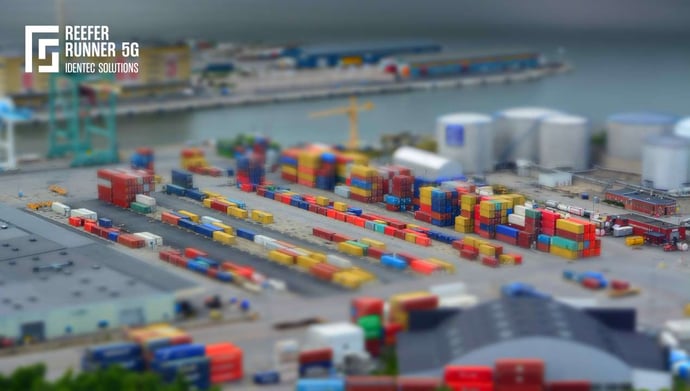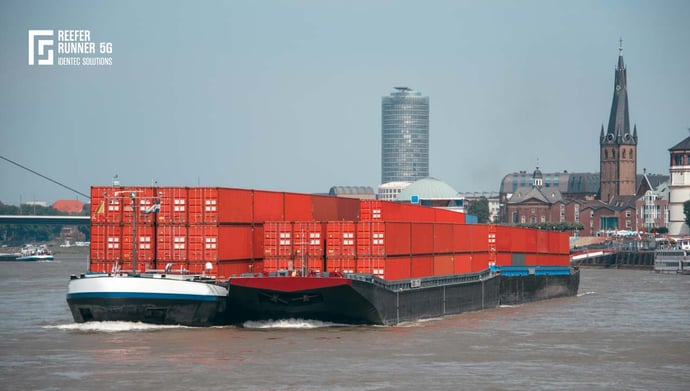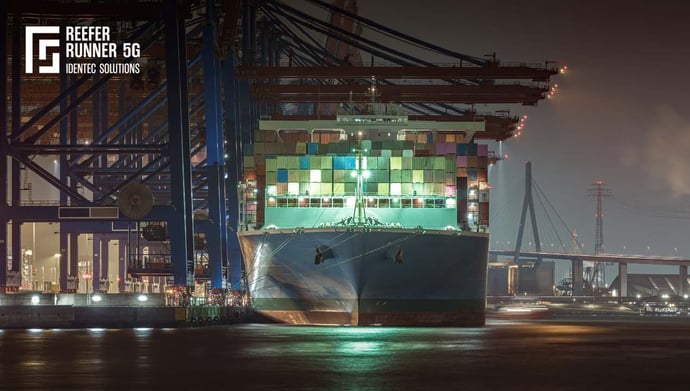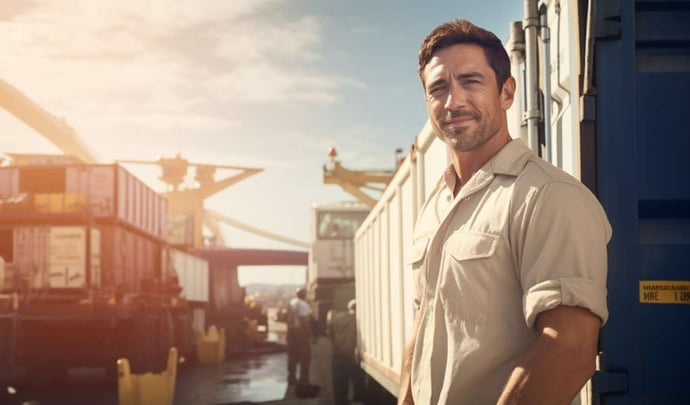Reefers on Rails: Maximizing Efficiency in Transporting Refrigerated Containers
| Written by Mark Buzinkay
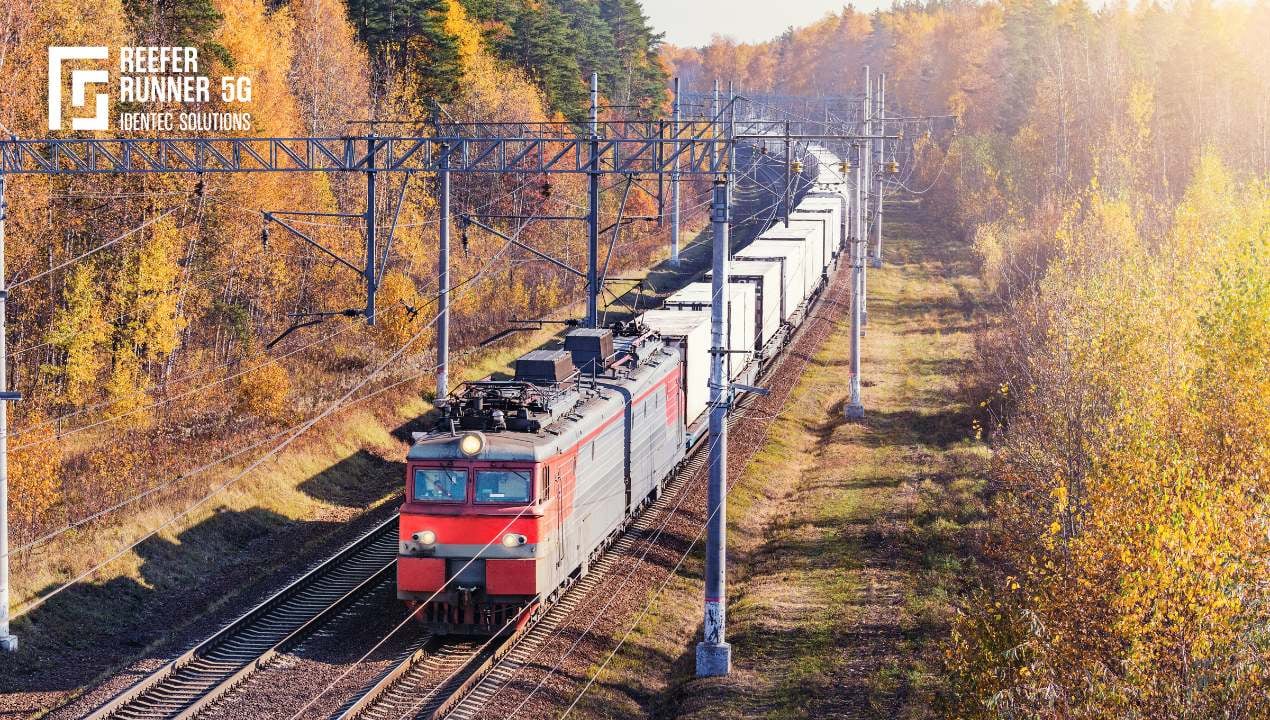
No video selected
Select a video type in the sidebar.
Is Rail cargo significanT in Europe?
Rail cargo plays a crucial role in facilitating the efficient movement of goods across Europe. With its numerous advantages, including higher capacity, reduced carbon emissions, and the ability to reach remote regions, rail networks have emerged as a vital component of the European logistics landscape (see for more: cold chain warehouse management).
By expanding rail infrastructure, improving intermodal connectivity, and incentivising rail usage, European logistics can harness the benefits of rail cargo and foster a more efficient and sustainable transport system.
One key advantage of rail cargo is its ability to accommodate higher volumes of goods compared to other transportation modes. Rail systems typically have larger load capacities, allowing for the transport of more goods in a single trip. This increased capacity enables logistics operators to streamline their operations, reduce the trips required, and optimise resource utilisation. As a result, rail cargo plays a pivotal role in alleviating congestion on road networks, particularly for long-haul journeys where large quantities of goods need to be transported efficiently.
Rail transport offers a greener alternative to road transportation, making it an essential component of sustainable logistics strategies. Trains emit significantly lower carbon emissions per tonne-kilometre compared to trucks, contributing to reducing greenhouse gas emissions and combating climate change. According to the article above, the utilisation of rail networks has the potential to significantly decrease environmental impacts by diverting freight from road to rail. By prioritising rail cargo, logistics stakeholders can actively contribute to achieving climate targets and building a more sustainable future.
To fully harness the benefits of rail cargo, investing in expanding rail infrastructure and improving intermodal connectivity is crucial. European logistics can efficiently accommodate growing demands by enhancing rail network capacity, including constructing new rail lines and modernising existing infrastructure. Additionally, integrating rail with other modes of transportation, such as road and sea, through intermodal terminals enhances connectivity and enables seamless goods transfers between different transport modes. This multimodal approach optimises supply chain efficiency and reduces overall logistics costs.
To encourage greater utilisation of rail cargo, it is essential to create incentives and supportive policies. Governments and regulatory bodies can introduce measures such as reduced tolls, tax benefits, and financial incentives for companies that prioritise rail transportation. By providing economic incentives and fostering a favourable business environment, European logistics can promote a modal shift towards rail cargo, further enhancing its significance in the overall transportation system.
How Are reefers Powered on rails?
In the context of transporting cold chain shipping containers on rail, there are various methods to supply power to reefers. These approaches offer alternatives to traditional diesel generators, aiming to reduce reliance on fossil fuels and promote more sustainable solutions. Let's explore the different ways in detail:
- Conventional (or clip-on) gensets: Diesel generators attached to reefer containers have been widely used in truck transport and can also be applied in rail transport. However, their suitability for rail transport is debatable. Gensets occupy space on the train carriage and have limited fuel capacity, making them less suitable for long-distance transportation. Moreover, assembling and managing numerous gensets per train can be complex and inefficient.
- Refrigerated Block Trains: Some companies operate Refrigerated Block Trains where a larger diesel generator fixed on a wagon provides power to a train of reefer containers. These systems, utilised by companies like Sungate, Canadian Pacific, RZD, and MacAndrews, typically involve dedicated wagons equipped with generators and space for maintenance personnel. Remote monitoring options for reefers' functioning and temperature are also available in specific systems.
- Rail Reefer Generator Set (RRG): The RRG is a 10ft container equipped with a diesel generator. Ideally placed together with one or two reefers on a wagon, the RRG incorporates systems to monitor position, power supply, and tank capacity. It has the capacity to power two reefers for approximately one week, although specific operational details are currently limited.
- Integrated diesel-electric reefers: These reefers have a built-in fuel tank and generator, making them self-sufficient in power supply during rail transportation. Integrated reefers are commonly used in Europe, especially in 45ft containers. Similar integrated solutions exist in North America, including continental containers and refrigerated boxcars. Another model is the "trailer-on-flatcar," where a refrigerated trailer with its power supply is loaded onto a rail flatcar.
The above-mentioned options primarily rely on traditional power sources such as diesel generators. However, there are also emerging technologies that aim to reduce dependence on fossil fuels:
- Siros Sustainable Power System (SSPS): The SSPS converts kinetic energy from the train carriage into electricity, stored in a battery unit attached to the reefer. This environmentally friendly solution captures energy during train deceleration and transmits information about the reefer's functioning and temperature. However, the operational capabilities and market availability of SSPS are still being developed and require further investigation.
- Reewa wagon: Developed by Transagent, this system utilises the energy drawn by the locomotive from the catenary and a wagon-based power converter to supply power to reefers. Real-time communication of reefer freight temperature and position is facilitated. While a prototype was presented in 2017, current operational information about Reewa is limited.
- Wascosa railcar: Wascosa, a Swiss company, has developed a railcar designed to power reefer containers using electricity from the grid through the catenary and the locomotive. This system leverages standard equipment already employed in passenger trains. Since 2018, trains operating from the Port of Koper in Slovenia have implemented this system on a small scale.
These emerging technologies show promise for reducing environmental impacts and improving the sustainability of reefer transportation. However, more research and development are needed to assess their effectiveness, operational range, and market viability.

When do you choose reefer transport on railways?
When considering the transport of reefers on railways, several main success criteria come into play: speed, flexibility, and reliability. These criteria were identified through discussions with respondents who shared their general requirements for reefer container transport (learn more about cold chain shipping).
While rail transportation offers lower costs compared to trucking, speed emerged as a key consideration for many respondents, particularly shippers and service providers working on behalf of shippers. They emphasized the importance of timely delivery, especially when dealing with perishable goods like fruit, vegetables, and flowers that need to be assessed or delivered to auctions before specific cutoff times.
Flexibility is another crucial criterion highlighted by respondents. Shippers value the ability to determine their own pick-up and delivery times and make adjustments on short notice. They seek the option to choose between different modalities, including trucking or other modes of transportation, based on their immediate needs. However, this desire for flexibility can sometimes conflict with the preferences of terminals, which prefer predetermined planning for containers arriving or leaving via specific modalities.
Reliability emerged as a significant factor in the transport of reefers on railways. Many shippers and service providers operate under strict performance agreements with large retail chains. These retailers demand reliable and frequent service to effectively manage their inventory while also requiring flexibility to adjust delivery times and quantities as necessary. The market power of retailers enables them to exert pressure on costs, flexibility, and lead times, leaving little room for shippers and service providers to explore alternatives to truck transport.
Addressing these main success criteria is crucial to ensuring the success of reefer transport on railways. Finding ways to enhance speed, provide flexibility in scheduling and modal choice, and maintain a high level of reliability will be key factors in encouraging the adoption of rail transportation for reefers (see here: Cold chain requirements).
Dive deeper into one of our core topics: Cold Chain Monitoring
Glossary
Multimodal transport involves the seamless movement of goods using two or more modes of transportation, such as road, rail, sea, or air, under a single contract. It enhances efficiency by optimizing cost, time, and logistics. A single carrier or operator oversees the entire process, ensuring streamlined operations and accountability. This system supports global trade by connecting various transportation networks and reducing handling complexities. (2)
Sources:
(1) Castelein, B., Geerlings, H., & Van Duin, J. (2019). Reefers on Rails: Investigating User Perceptions and Technological Prospects)
(2) Rodrigue, J.-P., et al. The Geography of Transport Systems. Routledge, 2020.
Note: This article was updated on the 22nd of January 2025

Author
Mark Buzinkay, Head of Marketing
Mark Buzinkay holds a PhD in Virtual Anthropology, a Master in Business Administration (Telecommunications Mgmt), a Master of Science in Information Management and a Master of Arts in History, Sociology and Philosophy. Mark spent most of his professional career developing and creating business ideas - from a marketing, organisational and process point of view. He is fascinated by the digital transformation of industries, especially manufacturing and logistics. Mark writes mainly about Industry 4.0, maritime logistics, process and change management, innovations onshore and offshore, and the digital transformation in general.


